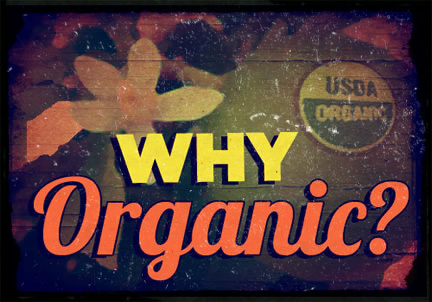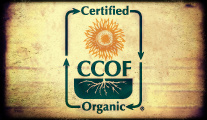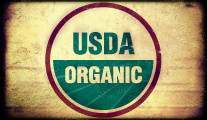
organic history
Since the 40's, when producers began using chemicals in agricultural production, there has been a conscious demand for organically grown foods. The use of agricultural chemicals increased in the 50's and reports on the dangers of chemicals in the food chain became mainstream conversation. The consumer demand for organic food was so significant by the 60's that the organic foods industry was born.
In the 70's, organic organizations appeared representing merchandisers as well as producers along with magazines and periodicals dedicated to the organic foods industry. Fred Allen, a West Coast field editor for "Organic Farming and Gardening Magazine" accomplished the earliest attempt at organizing a form of organic certification. Another early enthusiast was Fred Rohe of "New Age Natural Foods", who organized a group called "OM", short for Organic Merchants. Gail Haczela of "Berkeley Bay and Area Food Conspiracy" is another name synonymous with the early beginnings of certification organizations. Her ideals led to the establishment of C.C.O.F (California Certified Organic Farmers), the oldest active certification organization on record.
The 80's saw an even larger organic marketplace emergence, including new manufactured organic product lines and non-food items. With the ever-increasing demand and the rising market prices organic products, the need for a comprehensive certification standard was essential.
As a result of that need, the California Organic Food's Law of 1990 was written and enacted and enabled the organic food industry to prosper in the 90's. This law opened the door for many new national and international certification organizations to enter the industry in the 90's, and since that time the organic industry has expanded to record levels.
Today, among the general population, organic usage jumped nearly 10% in 2000 compared to 1999, with 43 percent of the population using at least some organic products. (Organic Consumer Trends 2001, Natural Marketing Institute) And independent studies of the organic industry show that a steady growth of 23% annually.
organic certification
s undance is certified by California Certified Organic Farmers (CCOF). CCOF’s certification gives consumers a high level of confidence in the authenticity of their organic products. CCOF’s procedures and policies assure the consumer that the certification process was performed in accordance with a uniform organic standard, the USDA’s National Organic Program. If the crop or product is destined for export, the certification process is completed according to the regulations of the country or countries to which the product will be exported.
According to those standards, Organic food is produced without using most conventional pesticides; fertilizers made with synthetic ingredients or sewage sludge; bioengineering; or ionizing radiation. Organic meat, poultry, eggs, and dairy products come from animals that are given no antibiotics or growth hormones.
Before a product can be labeled "organic," a USDA accredited certifier inspects the farm where the food is grown to make sure the farmer is following all the rules necessary to meet USDA organic standards. Companies that handle or process organic food before it gets to your local supermarket or restaurant must be certified and inspected also.

why organic?
Srganic Citrus and Avocadoes are produced by farmers who emphasize the use of renewable resources and the conservation of soil and water to enhance environmental quality for future generations (USDA). Certified organic food in the United States is grown according to standards set by the National Organic Program.
According to those standards, Organic food is produced without using most conventional pesticides; fertilizers made with synthetic ingredients or sewage sludge; bioengineering; or ionizing radiation. Organic meat, poultry, eggs, and dairy products come from animals that are given no antibiotics or growth hormones.
Before a product can be labeled "organic," a USDA accredited certifier inspects the farm where the food is grown to make sure the farmer is following all the rules necessary to meet USDA organic standards. Companies that handle or process organic food before it gets to your local supermarket or restaurant must be certified and inspected also.






